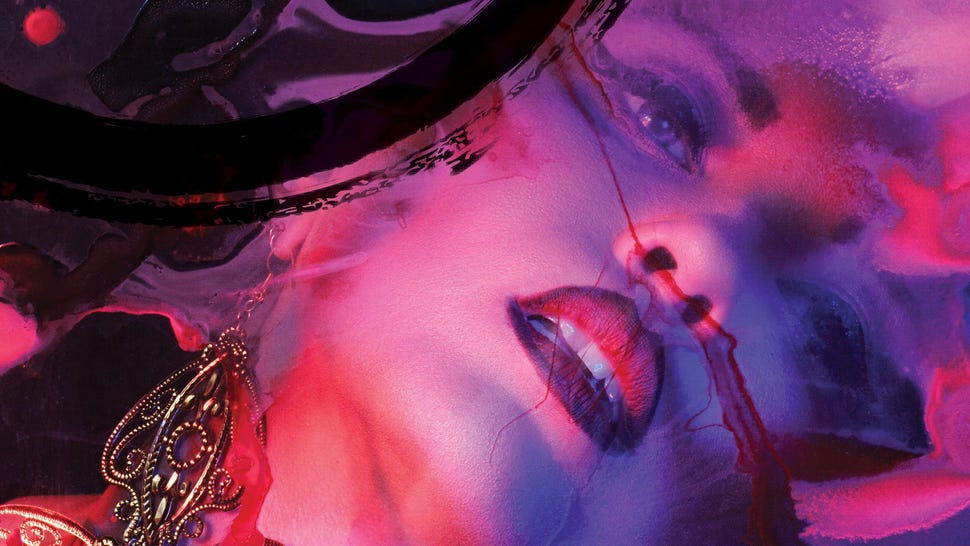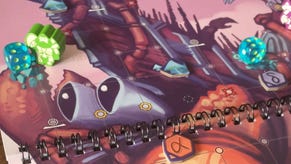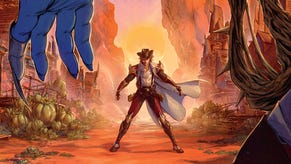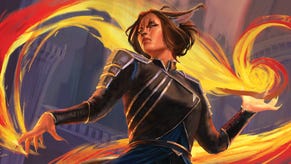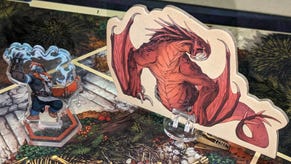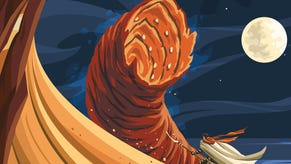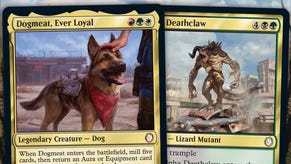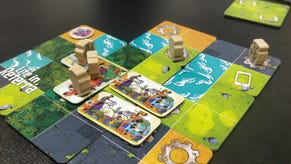Shedding light on World of Darkness, the gothic-punk universe of RPG Vampire: The Masquerade
A bloody good time.
It has been over 15 years since the World of Darkness was cancelled, but now the roleplaying setting has risen from the grave to terrorise a new generation.
The World of Darkness is the gothic-punk setting for White Wolf’s tabletop fantasy RPGs; a dark reflection of our own world, rife with corruption and decadence. Humans are the unwitting pawns of supernatural creatures, who engage in a millennia-spanning war of Machiavellian intrigue.
The setting is currently undergoing a renaissance, with new editions of the games being released. There are board game and video game adaptations being developed, as well as the acclaimed actual play series LA by Night.
Roleplaying games were invented by Gary Gygax and Dave Arneson with Dungeons & Dragons, but Mark Rein-Hagen revolutionised them when he created the World of Darkness. Instead of being villains to be hunted down, players took on the role of supernatural creatures as they struggled to hold on to the tattered remnants of their humanity.
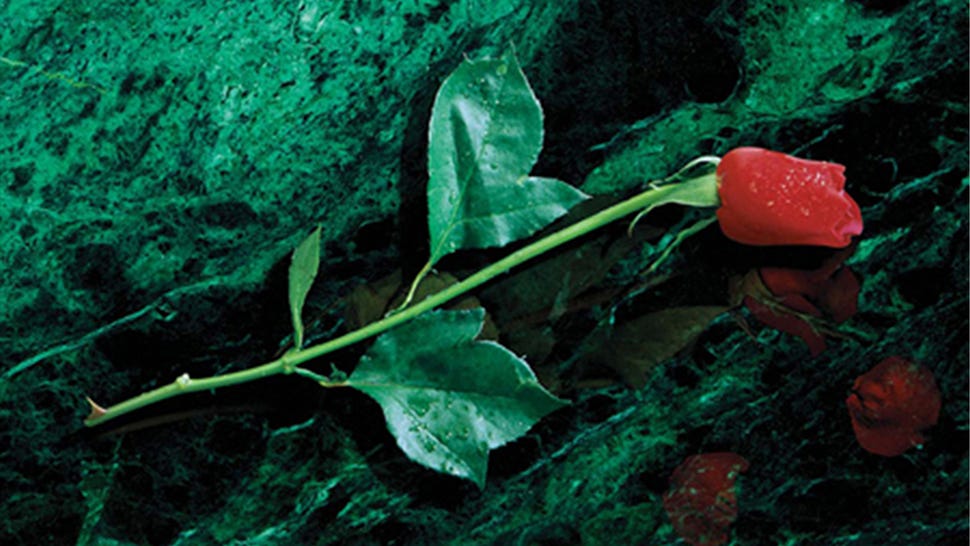
“It came to me in a flash,” explains Rein-Hagen. “I needed to flip the table, have the players be the vampires, and have them fight each other instead of monsters.”
It was Vampire: The Masquerade that first introduced players to the World of Darkness in 1991. Other games in the universe soon followed, such as Werewolf: The Apocalypse and Mage: The Ascension.
The World of Darkness was one of the first times we saw vampires warring with werewolves in pop culture. The immortal clash has since been replicated in films like Twilight and Underworld; the latter saw Sony Pictures being taken to court for copyright infringement.
Unlike most games available at the time of release, the World of Darkness wasn't focused on killing monsters. It offered a different gaming experience; one that relied on storytelling and personal horror, rather than rules and combat tables.
It doesn't intend itself to be a game first and foremost; it intends itself to be a world from which the players’ stories emerge.
“The rules exist only to give us a framework to tell stories,” says World of Darkness developer Justin Achilli. “It doesn't intend itself to be a game first and foremost; it intends itself to be a world from which the players’ stories emerge.”
A key distinction between the World of Darkness and other tabletop roleplaying games such as Dungeons & Dragons 5E is that the person who runs the game is the storyteller, rather than game master or dungeon master. This exemplifies the tonal shift in World of Darkness games, where it is less about overcoming the GM’s challenges. Instead, it encourages a collaborative approach, akin to telling shared tales around the fire.
“Saying ‘storyteller’ was part and parcel of the adult conceit I was going for,” says Rein-Hagen. “The vibe was about creativity and free expression, and rediscovering the ancient art of storytelling.”
One of the greatest appeals of the World of Darkness is the endlessly compelling setting. The dark shadows frequently hide mysteries waiting to be discovered, whilst the few bright lights often mask a dark secret.
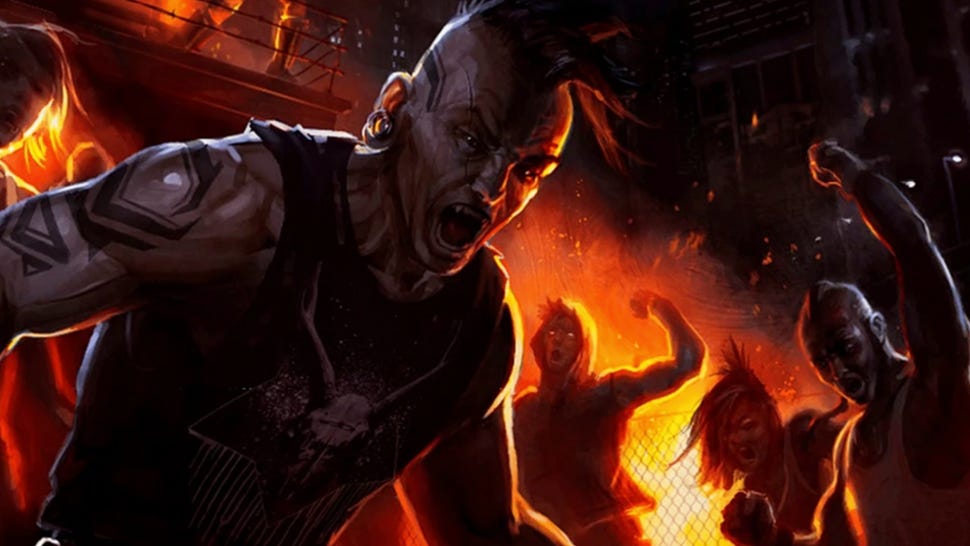
“The World of Darkness pushes the story first - your place in the world became the reward in and of itself,” says Achilli. “It wasn't necessarily about a power escalation, or getting the next interesting magic item, it was about being much more proactive.”
Whilst each of the World of Darkness games are broadly described as personal horror, their themes are quite different. Vampires are vastly different to mages, for example; whilst Vampire: The Masquerade focuses on the human condition and redemption, Mage: The Ascension explores themes about power and hubris.
The World of Darkness is one of the few settings that became more than just a roleplaying game. The success of the games spawned spin-ff card games, video games, a soundtrack CD and even a (terrible) television series called Kindred: The Embraced.
It also helped spark a surge in popularity of live-action roleplaying (LARP). At its height in the late 1990s, there was a World of Darkness LARP club in almost every major UK town. These were not just Vampire: The Masquerade games, but Werewolf and Mage LARPs too.
But all good things must come to an end. The World of Darkness came to an apocalyptic conclusion in 2004 with the Time of Judgement storyline, which effectively brought the entire setting to a close with a series of interconnected storylines for each game.
The third revised edition of the World of Darkness games had not been the sales boom that White Wolf had hoped for. Alongside this, the coming Armageddon had been alluded to throughout the setting since its inception, and further delay would have lessened the impact.
The World of Darkness was replaced with a new setting, called the Chronicles of Darkness. Unlike the World of Darkness, Chronicles of Darkness was not heavily invested in its lore. It focused instead on providing a cohesive rules system between the various games within the setting, allowing greater opportunities for crossover.
The vibe was about creativity and free expression, and rediscovering the ancient art of storytelling.
“A lot of the systems didn't talk to one another well, so the deliberate choice then as we went into Chronicles of Darkness was to make the toolbox more universal,” says Achilli.
Unfortunately, whilst the various Chronicles of Darkness systems work well together and offer a setting based on the storyteller’s creativity, it lacks the sense of mystery that permeated the World of Darkness.
White Wolf was acquired by CCP Games - the maker of sci-fi PC game EVE Online - in 2006 with the intention of creating a World of Darkness MMO. However, EVE Online players objected to their investment being used to develop another game. This saw a drop a massive drop in EVE’s subscriptions, to such an extent that CCP was forced to cancel the planned World of Darkness video game.
It all seemed over for the World of Darkness. The setting had been replaced, the MMO was cancelled and White Wolf was owned by a company that no longer had any use for it. However, interest in World of Darkness endured.
Just because White Wolf had cancelled the setting did not stop fans from playing the game. In 2011, a 20th anniversary edition of Vampire: The Masquerade, designed as a thank you to its fans, was so successful that it proved without a doubt that interest in the World of Darkness continued unabated.
20th anniversary editions of other World of Darkness games soon followed and were equally successful. These 20th anniversary editions sought to bring together the best elements of the previous three editions of their games to provide an (at the time) ultimate resource for that game. These editions did not continue the setting’s storyline, but acted as refinement of what had gone before.
However, things were about to change. In 2015, Paradox Interactive acquired White Wolf, including the World of Darkness. Three years later, a new fifth edition of Vampire: The Masquerade - called V5 - was released by a newly reformed White Wolf.
“We looked deeply at the foundations of both World of Darkness and Chronicles of Darkness - from lore, to character identification, to foundational game systems,” says Sean Greaney, brand manager for World of Darkness at Paradox. “Following this analysis, we landed on the original as better serving our vision.”
When World of Darkness was unleashed, we lived in a world with monsters we didn’t understand. 2020 isn’t so different.
As well as acting as a stepping-on point for new players, V5 incorporates a new rules system. V5 remains recognisably Vampire, but it has been updated for a new gaming era. The setting is advanced into the modern day, taking account of technological developments.
“When World of Darkness was unleashed, we lived in a world with monsters we didn’t understand,” says Greaney. “2020 isn’t so different. We still sit baffled and try to understand how and why things are the way they are.”
One of the core changes to V5 is the hunger mechanics, replacing the blood pool. Instead of using blood points, characters now become increasingly hungry the more they use their powers. This simple mechanic reinforces a vampire’s need to feed.

Due to the nature of its themes and content, the World of Darkness has always been a transgressive setting and frequently courted controversy. The launch of V5 was met with claims that the game promoted far-right politics, due to how the Brujah, a clan of impassioned philosophers and activists, could embrace alt-right figures.
The Anarch and Camarilla sourcebooks, which followed, used the human rights violations against LGBTQ+ people in Chechnya as part of their in-fiction narrative. The subsequent outcry that followed saw the sourcebooks suspended and the offending content replaced, along with a public apology.
Since then a fifth edition of Werewolf: The Apocalypse has been announced, and it is expected that fifth editions of other World of Darkness games will also be released.
The World of Darkness is exploring formats beyond RPGs. Heritage, Chapters and Blood Feud are three World of Darkness board games set to be released in 2020. Similarly, Bloodlines 2, Coteries of New York and Earthblood video games are being developed.
Despite being over 25 years old and cancelled 15 years ago, a new generation of players are exploring the shadowy corners of the World of Darkness.
“2020 will be the best year ever to be a World of Darkness fan; we’ll release more video and board games [this] year than in the entire history of the brand,” concludes Greaney. “We’ll release important additions to the Vampire: The Masquerade tabletop lineup, perhaps even foreshadowing unannounced projects.
“We’re coming to meet fans with products that deliver on the legacy of tabletop RPG play, but expand the brands onto screens, into headphones and across a transmedia experience. And I don’t mean that just for Vampire: The Masquerade and Werewolf: The Apocalypse.”
